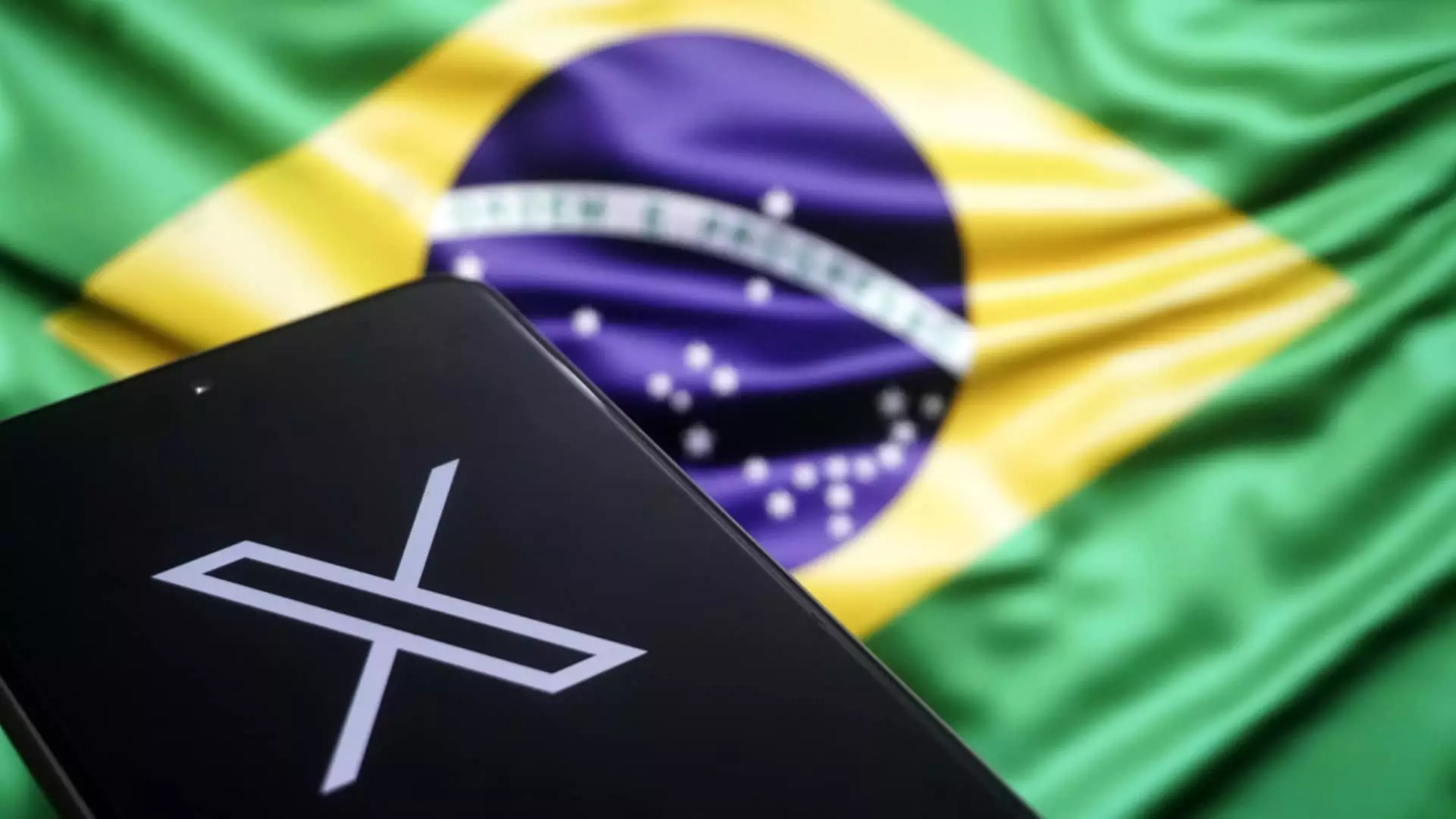Elon Musk’s X, once a dominant player in the social media landscape, recently faced an arduous battle in Brazil, culminating in a notable standoff with the country’s judiciary. The conflict arose after Brazil’s Supreme Court Minister, Alexandre de Moraes, issued a suspension of the platform on August 31. The reason? Musk’s decision to sidestep requests from Brazilian authorities to ban certain user accounts and remove content that breached national laws. This tense situation highlighted the delicate balance between tech companies and governmental regulations, particularly concerning issues of free speech, misinformation, and user safety.
After months of negotiation and mounting pressure, X announced its return to Brazil with a declaration aimed at the platform’s users and supporters: “X is proud to return to Brazil.” The company emphasized its commitment to freedom of speech while also acknowledging the legal frameworks that govern its operations. The Supreme Court, acknowledging X’s compliance with de Moraes’s stipulated conditions, permitted the platform to resume its services, much to the relief of millions of Brazilian users who rely on the platform for information and connectivity.
The Brazilian government has enacted stringent regulations surrounding internet use, primarily to combat hate speech, incitements to violence, and political misinformation. These regulations necessitate that foreign tech companies have a local legal representative, an obligation that Musk initially resisted. His reluctance to establish an office in Brazil, along with his outspoken criticism of Minister de Moraes—likening him to a villainous character from popular culture—only intensified the situation. This conflict read like a geopolitical drama, underscoring the friction between individualistic corporate philosophy and collective societal responsibility.
As the stand-off continued, reports emerged that investors in Musk-led enterprises were urging compliance with Brazilian norms to avoid escalating legal consequences. The prospect of daily fines and the seizure of X’s assets in Brazil, including those affecting SpaceX’s Starlink operations, became a pressing concern for the billionaire entrepreneur. The narrative took a significant turn, transitioning Musk from a position of defiance to that of negotiation, indicative of how market pressures can often temper obstinate attitudes in the face of regulatory scrutiny.
During X’s suspension, rival platforms like Bluesky and Threads capitalized on the vacuum, amassing millions of new users in Brazil—a trend that presents its challenges as well as opportunities for X. As the social media landscape evolves, platforms must remain vigilant not just against regulatory threats but also against newly emerging competitors. The swift changes in user loyalties during X’s absence may serve as a cautionary tale for Musk and his team, as they navigate the complexities of international markets.
With X’s resumption of services, a cautious approach towards compliance with Brazilian laws appears essential for future operations in the country. The episode not only sheds light on the precarious balancing act tech companies must perform in global markets but also raises significant questions about the role of social media in fostering open discourse versus the imperatives of legal accountability. Moving forward, the experience serves as a reminder that the digital landscape is as much about navigating local laws as it is about innovation and user engagement.

